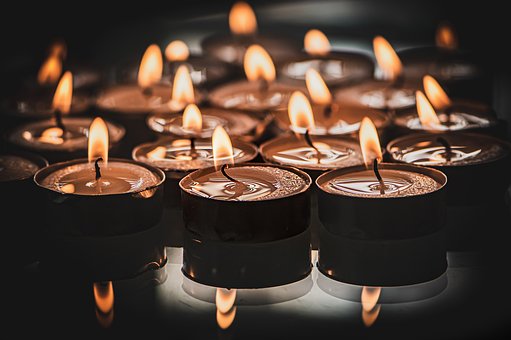In October 2022, many of us were surprised when Phoebe Plummer and Anna Hollandtwo activists denouncing the environmental crisis, threw tomato soup at the Vincent van Gogh Sunflowers at the National Gallery in London. “What is worth more art or life?” The young women wondered in a video after their attack.
The attacks have been repeated against works by Monet, Vermeer, Goya, Leonardo da Vinci, Botticelli, Picasso and Andy Warhol.
signs of “Just Stop Oil” (just stop the oil) and throwing food like mashed potatoes, cake, tomato, or flour onto pieces of art it has become a common protest by environmentalists. With their actions they question: What will be the value of art in the future if you can’t even eat?
The spokesman for an organization called Ecologistas en Acción justified the attacks: “Nothing is being done about a problem as serious as climate change, which endangers us as a species. And in the face of this inaction, it is normal for youth to be desperate.”
Something similar has happened in Mexico. A judge in the CDMX prohibited an artistic manifestation closing the Plaza México, violating the Constitution itself, under the assumption that it affected the environment.
There is a deep discussion behind these manifestations: Is art expendable? Is food or the environment above human manifestations that nourish the spirit? Is art a necessity or a simple luxury to adorn our lives? Is art something superfluous that should be subordinated to what has a practical meaning such as clothing or food?
Art transports us to a dimension of transcendence. For Kant, art is imposed as a mandate from within the human being. Hegel, for his part, says that “art is a particular form in which the spirit manifests itself”.
And Nietzsche, within his nihilism, maintains that art has more value than truth because it affirms the life of the human being.
Art is the sensitive expression of an idea. It is the language with which emotions and feelings are expressed. It helps us to understand what we are, what has been and what the world is.
But for this, one must rise to a category of abstraction and discernment that the pragmatism of today’s society makes it incomprehensible to some.
Works of art are worth by themselves. They do not need anything outside of them. They do not require a practical purpose that gives them meaning. Hegel explained that “the work of art pursues a particular end that is immanent to it”. The human being uses both art and religion to express what is in the soul. To transcend.
A work of art, be it a poem, a painting, a piece of music, or a performance before a fighting bull—much more than terrorist attacks such as those carried out by activists in museums—have the capacity to disturb. They produce surprise, emotion, they make us feel human. They separate us from the beasts.
The society of the 21st century finds itself in a monotonous life. Art helps us deal with the stress and sedentary lifestyle of everyday life. We require art to maintain good taste and mental health.
The fine arts are not a luxury, but a necessity for those of us who live within a community. Art is as essential as food, shelter, or safety.
Attacks against works of art are not new. Feminists seeking women’s suffrage in the UK vandalized famous paintings in 1913.
One hundred years later, the Tate Britain, a museum in London, presented an exhibition with artistic pieces and religious iconography that had been destroyed by various violent demonstrations.
The Tate Britain expressed that this vandalism attempted against one of the highest values of our civilization: art in any of its expressions.
Albrecht Dürer, one of the most famous artists of the German Renaissance, said that only a maniac or criminal would attack a work of art.
Perhaps in that category we could classify the environmentalists who vandalize the paintings in the museums of Europe, the lawyer Pérez de Acha and the CDMX judge who colluded to close a bullring or Raymundo Martínez Carvajal, municipal president of Toluca who canceled a bullfight that was to be held to benefit children with cancer.
All of them, faced with a supposed superiority of nature or of practical issues such as food or shelter, run over the transcendence and spirituality of the human being.

